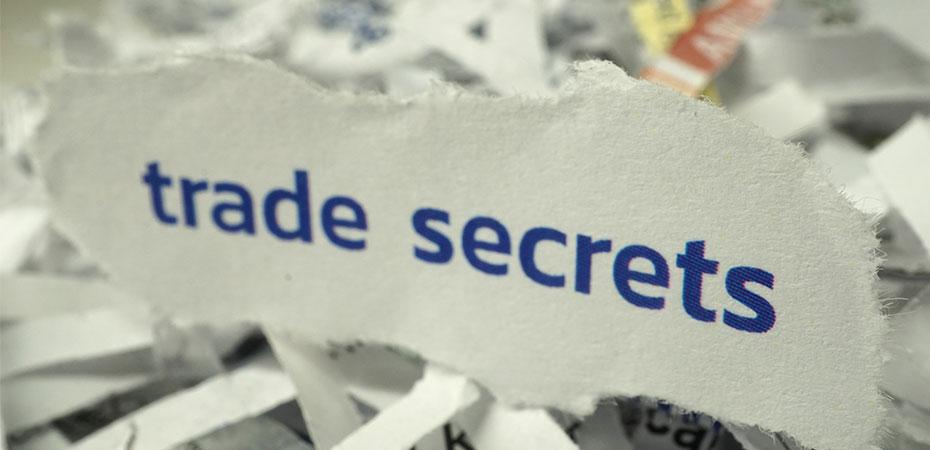
Written by Mr. Jamie Rowlands, IP Expert and collaborator of the China IP SME Helpdesk
On 26 February 2021, the Supreme People's Court of China (the "SPC") handed down the second-instance judgment for the dispute between the plaintiffs Jiaxing Zhonghua Chemical Co., Ltd. ("Jiaxing Zhonghua Chemical Company") et al. and the defendants Wanglong Group Co., Ltd. ("Wanglong Group") et al. over the infringement of technical secrets involving the chemical Vanillin.
The defendants were ordered by the SPC to cease the infringement and pay damages of RMB 159 million, which is the largest trade secret infringement case compensation granted to date.
We provide an overview of this case, as well as five key points to note, in this article.
Case brief
Jiaxing Zhonghua Chemical Company and its associated companies successfully developed a new production process of vanillin and thereafter protected it as a trade secret. Prior to the infringement in this case, Jiaxing Zhonghua Chemical Company was the largest manufacturer of vanillin in the world, accounting for approximately 60% of the global vanillin market.
In 2010, a former employee of Jiaxing Zhonghua Chemical Company obtained improper benefits and disclosed the trade secrets to the chairman of Wanglong Group.They subsequently worked at the vanillin workshop in the Wanglong Group.
Jiaxing Zhonghua Chemical Company initiated the civil proceedings against Wanglong Group and its chairman in 2018, as well as the former employee, for the infringement of the technical secrets of vanillin. The plaintiffs sought a cease of infringement order and compensation of RMB 502 million.
Key takeaways of the case
1. Natural persons associated with the infringing company can be held jointly liable
Natural persons such as legal representatives, beneficial owners of the company, and key management staffs may be held jointly liable with the company under certain conditions.
For example, the persons who have exercised their will by substantially "controlling" the company, and have a common intention to carry out the acts of infringement with the company, might be held jointly liable with the infringing company.
In this regard, the court will generally consider the following factors to determine the joint liability in judicial practice:
- The legal representatives, beneficial owners of the infringing company, and key management staffs have a history of infringement or other intellectual property disputes with the right holder.
- The persons have established one or several companies mainly profiting from the business of infringement.
- The persons whose personal contact information is regularly used as the prime contact information in the advertisement, official website, microblog or WeChat public account of the infringing company.
- The persons whose personal bank accounts are used for receiving payment on behalf of the company, etc.
2. The alleged infringer shall bear the burden of proof of the trade secrets' non-existence
The preliminary burden of proof on the right holder will be completed after a reasonable explanation of the distinctiveness of the secrets and the distinction of the confidential information/technology from the public information/technology. At this point, the alleged infringer needs to prove that the information has entered the public domain and is therefore not a protectable trade secret.
In other words, the burden of proof will be shifted to the alleged infringer after the right holder proves the establishment of trade secrets with prima facie evidence.
3. The conducts that are not directly related to the infringement can affect the amount of compensation
When determining the amount of compensation, the court might take into consideration the defendants' conducts / acts in the proceedings. For example, this could include the defendants' refusal of providing relevant evidence, hindering the investigation of the facts, failure to comply with the ruling of the act or asset preservation order and unreasonable delay of the procedure, etc.
Although the conducts mentioned above are not directly related to the infringement per se, they might be nonetheless considered as decisive elements in determining the amount of compensation by the court.
4. The breakthrough of "civil prior to criminal" procedure
In judicial practice, it is protocol that the court tends to handle the criminal cases prior to the civil ones in terms of infringement of trade secrets.
In this case, the right holder tried to report to the Public Security Bureau ("PSB") and resort to the criminal proceeding, but this failed in the end. The SPC proactively transferred the crime clues (i.e. the case materials) to the PSB when the infringement had been found. It is predicted that the PSB and the procuratorate will start the criminal prosecution procedure after receiving these clues.
It can therefore be naturally inferred from this case that the "civil prior to criminal" procedure, i.e. starting civil proceedings before resorting to the criminal procedure, should also be considered as a workable choice for the trade secrets right holder.
5. Punitive damages must be claimed in the first-instance proceeding
The Civil Code of the People's Republic of China, effective from 1 January 2021, provides for the system of punitive damages for intellectual property rights, marking the full coverage of punitive damages in the IP field.
However, according to a judicial interpretation issued by the SPC, the punitive damages must be claimed by the plaintiff and a court shall not rule on a defendant to bear punitive damages liability ex officio. In addition, punitive damages shall be claimed before the end of the court debate in the first instance.
In this case, as the plaintiffs did not claim for punitive damages in the first instance proceeding (as the case was initiated in 2018), the court did not award punitive damages to the defendants, although the case was adjudicated after the Civil Code has come into effect.
Article written by Jamie Rowlands, Partner at Gowling WLG jamie [dot] rowlands gowlingwlg [dot] com (jamie[dot]rowlands[at]gowlingwlg[dot]com)
gowlingwlg [dot] com (jamie[dot]rowlands[at]gowlingwlg[dot]com)
Details
- Publication date
- 13 September 2021
- Author
- Executive Agency for Small and Medium-sized Enterprises
